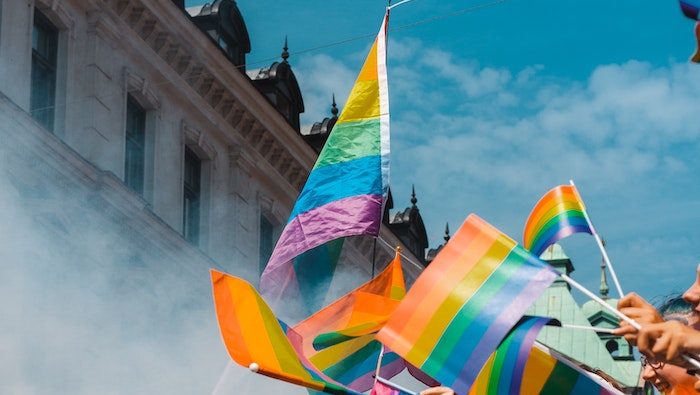
Sexuality, Rights and Culture in the Postcolony

This post is part of Frontiers’ celebration and marking of Pride month 2022
In January 2021, the opening of an LGBTQ+ community centre in Accra might have marked a new era in the acceptance of sexual identities in Ghana. Sadly, however, the reaction in some quarters was extremely hostile and threatening. Religious groups and government ministers demanded closure of the centre. After a torrent of online abuse and death threats, the Centre closed in February. The offices of LGBT+ Rights Ghana were raided and closed by the police.
Subsequently, in July 2021, draft legislation was submitted by a group of backbenchers in Ghana’s Parliament. It proposes up to ten years imprisonment for those who advocate LGBTQ+ rights, express sympathy, or offer medical support. Intersex people would be criminalised and could be ordered to receive ‘gender reassignment’ surgery. Although the enactment of the bill seems unlikely, the fact that it was proposed is itself significant.
How might we explain these events? I begin by highlighting the irony that, like many countries of the Commonwealth, Ghana’s history of criminalisation of same-sex sexualities is an imperial creation achieved through the transplantation of the Victorian crime of ‘unnatural carnal knowledge’. That legacy of colonialism – which routinely constructed the ‘native’ as sexually immoral and in need of the civilising mission of Empire – continues to cast its shadow today. To Ghana’s credit, the Victorian law has only rarely been enforced in Ghana’s history. Nevertheless, its continued presence on the statute book serves as a justification for homophobic abuse and violence.
The Ghanaian experience today around sexual identities reflects a mixture of global and local forces which are not easy to untangle. Global influences and interconnections mean that same-sex sexuality as a marker of personal identity labelled as LGBTQ+ is increasingly common. Furthermore, the language of universal human rights more generally has an unsurprising resonance in a postcolonial society, and is easily fused to sexual identity politics. On the other hand, support for LGBTQ+ rights in Ghana from the international community no doubt contributes to a backlash against rights, which are described as contrary to ‘Ghanaian family values’. Ghanaians are urged ‘never to be cowed down or to succumb’ to that international pressure. In this moment, the country is described as facing an external threat from the forces of globalisation (including the European Union) and the colonial power (the UK).
But there are further aspects to this arena of rights struggle. Anti-gay discourse provides a useful means to strengthen the identity of the beleaguered nation state under neoliberalism, in which the government has lost many of the economic levers to assert nationhood, as evidenced by an international debt crisis combined with soaring inflation. Moreover, religion reverberates throughout Ghanaian society and in itself is a meeting point between transnational and local forces. Claims regarding indigenous ‘cultural values’ merge seamlessly with the supposed tenets of Christianity and Islam, which justifies the expulsion of same-sex sexualities from the public sphere. Those politicians who in private are sympathetic to the struggles of sexual minorities, find themselves highly constrained in their ability to take action publicly.
As elsewhere, international activists need to tread very cautiously in such an environment. First and foremost, we need to remember that anti-gay activism today is as easy to find – if not more so – in the Global North as in the South (and the two are inevitably linked by the actions of transnational social movements). Otherwise, activists and legal analysts will fall into the trap of replicating the colonial construction of the primitive (non-rights respecting) ‘other’. Furthermore, overt public pressure for legal change can exacerbate the situation and calls to disengagement are likely counterproductive.
Instead, I would urge the continuation of quiet diplomacy and strong support for local activists, NGOs, and local allies (of which there are many in Ghana). I believe that, as in other postcolonial contexts, activists are very savvy in their deployment of a blend of arguments that range across the language of international human rights to the reclaiming (and renaming) of indigenous cultural practices and communities through a modernist lens of identity. Whether that reclamation of anthropologically ‘sound’ is rather beside the point.
Furthermore, ‘cultural values’ themselves provide fertile ground for counterarguments to anti-gay discourse. Once again, culture is an inevitable construction which can be readily deployed by both sides. The language of family, community, and nation as sites of inclusion and acceptance resonates strongly with the vast majority of Ghanaians and itself provides an ‘imagined community’ of Ghanaian nationhood. At the same time, human rights law remains an important source of national pride. Thus, despite the recent setbacks, I remain hopeful that progress in Ghana will occur and that it will happen through a particular alignment and articulation of global and local conditions.
These questions of identity, rights, and culture remain central to Socio-Legal Studies. They are as relevant and challenging today as when I began considering them over two decades ago.

